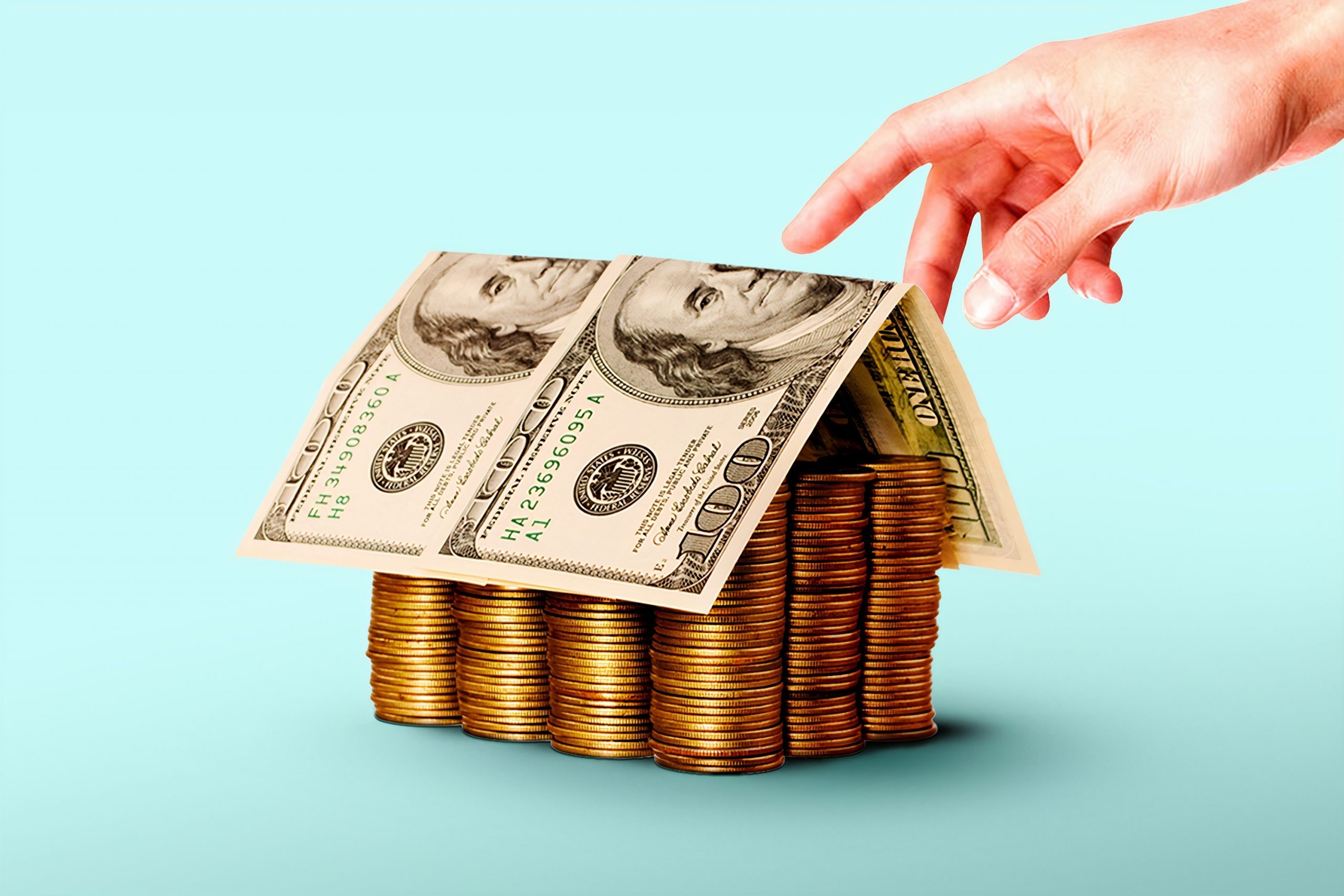Blog
With every day that goes by, we all seem to find ourselves wondering what ways we’re going to see both health and economic impacts during this pandemic. So today, I wanted to talk about what homeowners, and people who are in the process of purchasing a home, might be experiencing in this turbulent financial market.
Fed Fund Rate vs. Mortgage Rates
Before anything else I think it’s important for people to understand that the “Fed Funds Rate” is not the same as mortgage interest rates. The Fed Fund Rate is the rate that the Federal Reserve designates for loaning money to banks and businesses for overnight liquidity. So when the Fed announces that their rate is zero, it does not mean that MORTGAGE rates are at zero. Mortgage rates are in the 3-4% range. That is historically low, but I don’t want anyone to confuse it with the zero percent Fed Fund rate.
Varying Rates Between Banks
Pre-COVID, when it came to mortgages, Interest rates didn’t vary much between banks. You could ship around, but in general, rates at different banks were very close (often within a quarter of a percent) to one another.
Today, we’re seeing significant differences in rates from bank to bank (often over a whole percentage point, or sometimes more). This has nothing to do with how much a loan officer is making on the transaction, but has everything to do with bank liquidity. Depending on the strength of the bank, the loan program, credit, debt to income ratio, etc… any risk factor that may be present will increase the rate of interest in today’s market.
So what are Risk Factors?
If you’re in the process of acquiring a home loan, your loan officer is going to be looking at several things that are considered possible risk factors and how they are going to affect your probability of repayment. When determining ability to pay, we’re looking at employment history, strength of credit, income, etc. When determining risk factors, we’re looking at debt-to-income ratio, overdrafts, deposits, etc. In today’s climate, every lender across the board is looking much more critically at how you make payments, what debt you have, etc. in order to determine your likelihood of repayment.
I know that this may seem like extra hoops to jump through, and can be downright annoying. But the good news here is that there is still plenty of financing available, especially if you’re borrowing under $510,500.
What is a Jumbo Loan?
Borrowing an amount over 510,500 is considered “Jumbo” financing, and has its own set of rules. Some banks are no longer offering Jumbo programs, and those who are have higher levels of scrutiny to contend with during our current economic shift. To be clear, not every bank has abandoned jumbo financing. It just means that there have just been a lot of changes- you might just have to look into different banks rather than the big box banks. If you are seeking Jumbo financing, it’s important to stay informed throughout the process as this situation is so fluid.
The same holds true with things like bond financing and down payment assistance programs… not all banks are offering them anymore, but they are absolutely still available. If the bank you chose no longer offers what you’re looking for, be sure to look to different banks and lenders.
What Isn’t Available Right Now?
If you’re a consumer who needs financing outside of the box, like bank statement financing, or foriegn investors (typically called non QM loans)… you’re going to have a hard time finding it. That type of financing was typically found through investors and hedge funds. As the market declined, that financing was pulled. To be perfectly candid, I don’t know when that will come back. In the last recession we saw it take about 10 years to return. I genuinely don’t know if that will be the case this time, so we will just have to wait and see what develops in the coming months and possibly years.
Why can’t I “lock”?
ANother peculiarity in this environment is that banks are having to pay very close attention to how many loans they issue because of liquidity issues. They are having to make sure they they have warehouse resources, that they won’t have margin calls on their available resources, and as a result, are limiting the amount of rate locks that can happen within any given time period
What this means for you, if you are in the process of buying a home or refinancing (especially if you are refinancing) you may not be able to lock in your interest rate at the very beginning. This is common right now. But it’s not the worst thing in the world. Rate are incredibly low right now, and since the government is buying all mortgage backed securities, this trend is likely to continue for at least the next 30 days.
Forbearance vs. Deferment vs. Modification
I spent some time talking about this in detail a couple weeks ago (you can see that video here) But I want to bring this up again because it is SO important right now. There are differences between forbearance, deferment, and loan modification.
Forbearance does not mean forgiveness, it does not mean deferment, and it does not mean loan modification. It means that you are able to delay your payment for up to 90 days. But when that time is up, you owe all those payments. A forbearance does not automatically happen. You have to apply, and that application is reported to credit agencies. It does not negatively affect your credit score, but they do have an impact on your ability to borrow in the future.
My warning against doing this is to only seek this sort of relief if you absolutely have to. In the past when people have sought a forbearance, they were prevented from getting new financing for a number of years (up to seven!). We don’t have guidelines out right now to determine what
will happen as a result of COVID related forbearances, but I will say that if you are still able to make your payments, you should.
Deferment programs are slightly different in that whatever payments would have been made during the deferment period are simply tacked on at the end of your loan term, and they still accrue interest as they normally would.
Loan modification means that you’re either breaking up late payments over a course of time to be paid along with your regular payments, or you’re lowering your payment, but you are still responsible for the entire amount by the completion of your loan.
All of these can be a great move if you want to stay in your home and you know that you’re going to get back on your feet. My only warning is that if you’re seeking a forbearance, only do it if you know that you will have a large sum of cash available to you by the end of your forbearance period so that you can make the payment that will be due.
I’ve lost income- can I still buy?
This is the type of news that every loan officer hates to give: If you’ve been furloughed, or lost your income, it will have an impact on your purchasing power and ability to qualify.
You may be wondering if you can use other income to make up for what was lost. As a basic rule (any time, not just during this pandemic), if the lender cannot “rely” on the income – things like bonuses, overtime, shift differentials – they can’t include it.
So just please be aware that if you’re looking to use “other” types of income to apply for a mortgage, they’re subject to an analysis of their stability. Same goes if you’re self employed. Lenders want to know that your business is still making money, so they may ask for invoices, current receivables, profit/loss statements, etc.
And on a positive note, if you have been furloughed or are unemployed, if that gap is less than 6 months, we will be able to use that income again for your home loan. Not all hope is lost!
So hang in there, and if you have specific questions, I really am happy to answer them. Take care and stay well!
April 13, 2020

It all starts with a budget. I know you’re probably sick of me saying this, but I’m going to repeat it till it sinks in! I’m also going to talk about refinancing, side hustles, and other ways to save, but IT ALL STARTS WITH A BUDGET.
If you’re new here, go download my free SMART Steps Budget Guide right now. That guide is going to help you learn to live on 70% of your net income, and use the remaining 10-30% available to invest and/or have for a rainy day. And guess what? It doesn’t get much rainier than this…
Rainy Day Funds
So what is a rainy day fund? It’s a savings account that holds enough cash to cover your living expenses for a certain amount of time. Some people like to have 3 months saved up, some 6, and then for the SUPER worriers (like me), 12 months. My recommendation in our current situation is actually to try and get that fund up to 6 moths. We really don’t know how long we will be in this quarantine situation, and I personally believe it’s best to be over-prepared and plan for worst case scenario.
Obviously this takes time to accrue, but the sooner you get started, the sooner you reach that goal! Especially if you are still gainfully employed right now. Start putting away those savings into a rainy day fund until you have a comfortable cushion to see you through any financial emergency.
How do you do this? You start by minimizing your budget to the BARE ESSENTIALS. Cut all the extra curriculars, cancel all the subscriptions. Right now, many people are paying for things like gym memberships, nail clubs, massage memberships, etc., but because of “Shelter in Place” orders, you can’t make use of them. Now, if you are in the financial position to keep up those memberships and support those businesses, then great. I think that’s wonderful and I hope that the people who can afford that, maintain their memberships for use when this clears up. BUT, if you don’t have any savings and/or are concerned that you will be losing your income in the future, you need to make adjustments now to prepare. Canceling those subscriptions and services is a start.
Student Loan Payments
Let’s take a moment to talk about student loan debt. I’ve said it before and I’ll say it again- compound interest is a weapon of mass destruction. Guess what student loan interest is? You got it- compound interest.
In our current financial situation, there has been a lot of talk about student loan companies suspending payments, and if you DO make payments, the full amount of the payment will go towards principal. You can read more on that here.
If you are able to make your payments right now, you have an incredible opportunity to pay down your loan amount by applying those funds just to principle. If you lost your job and need to forgo making payments in order to continue paying for essential bills like food and housing, please do that. BUT, if you are still employed and still able to make payments, this can help you reduce your overall debt in the long term.
Refinancing
I’ve talked about this a lot in recent months, even before the COVID Crisis hit us. My advice on refinancing is actually the same now as it was then- I think you should only refinance if it makes financial sense in the long term.
That means that you should be seeing a significant savings on your monthly mortgage payment (200$ or more), saving at least a percentage point, and planning on being in the home for a long period of time. Be sure to check out my other video on refinancing for more detailed analysis on this topic.
Side Hustles
If you find yourself with nothing but time on your hands, now is the time to explore alternative ways of making money so you can build up that rainy day fund! Have you ever considered learning another language? Stick with me here- I know that sounds odd, but using this time to learn a second or even third language will make you more marketable to companies looking for customer service help when it comes to foreign languages. Maybe you have skills with graphic design, video conferencing, digital marketing, etc… there are companies that need help navigating this new socially distanced work from home life, and you can help them do it. If you don’t have a special skill, that’s ok. Use this time to develop one! Or use the time to do deliveries, or some other very necessary essential labor.
Learn about the Market
If you have the time, and you are unsure about what to do to plan for your financial future, I HIGHLY recommend learning about the market, do your own research on what is best for you, and pay attention to the news as it relates to finance. This way you can figure out where you can capitalize and make investments. Whatever you do, don’t be reactionary when it comes to investing. Following the masses is rarely a good idea when it comes to investing. This is why doing your own research and educating yourself is important.
SMART STEPS
I’ve been mentioning this for a couple weeks now, and we’re close to launching! SMART Steps is a facebook group where you can go to get practical money advice, ask questions and be part of a community that is focused on reaching financial goals with realistic principals. If you’re interested in joining, click here! We’d love to see you there 🙂
April 6, 2020

The world we’re living in has changed dramatically, and keeps changing day by day. Keeping that in mind, I want to deliver the most relevant and practical advice and information I can to you right now, and will continue to do so as we all ride this crazy rollercoaster.
We are in uncharted territory. Many of the events of the past week were unprecedented, and there are sure to be more. So I want to talk to you about what is happening right now, and what I see happening in mortgage banking for the next 6 months based on where we are right now. Now more than ever, we cannot predict what happens next. But we can and will get through this together.
The week of March 16th-20th, we saw massive and unprecedented changes in our financial markets. The bond and stock markets crashed, and Mortgage Backed Securities (MBS) were not purchased by anyone. The result is that we now have a banking crisis.
Last week, many people who are in the midst of the home buying process heard that they could not lock in their rate. The mortgage market was moving too quickly for banks to be able to hedge and determine pricing. We saw that the mortgage bond market would be stable at opening because the government was buying the mortgage backed securities, and then as soon as those purchases were finished, that market would crash. There was no stability. As a result, many banks did not issue rate sheets, some limited refinancing.
I’m telling you this so that if you are either in the process, or about to purchase a home, you understand what mortgage companies are facing right now. I do believe the mortgage market will stabilize, and if you were able to lock in your rate last week, then great. And if you’re about to purchase, it’s going to be ok. Just be aware of what is going on, and be sure to have a candid discussion with your loan officer and realtor about what they are seeing, and what your best options are while rates fluctuate so rapidly. They may recommend “floating” your rate right now, which is actually what I am recommending to some of my current clients, depending on their circumstances.
Bank Liquidity
It’s worth a deeper dive to understand why mortgages are affected just like the rest of the financial markets are right now. It has to do with liquidity. Banks have a limit to the number of loans that they can fund. They way they replenish that fund is through the sale of mortgage backed securities and of loans.
When mortgage rates dropped so dramatically, so many people wanted to refinance that it actually maxed out banks capacity to fulfill the lending demands. Without anyone purchasing MBSs (which is how they replenish their ability to lend more), the banks ran into a liquidity issue because they didn’t have the liquid funds to lend out.
So why are investors not buying the mortgage backed securities? Because in our current crisis, this pandemic is causing people to lose jobs and income. We’re seeing people go on furlough, and in general, there is nothing but uncertainty for so many. This gives investors the feeling that the likelihood of people defaulting on loans is much higher than in previous years.
Considering all of this, I think that in the short term, the government will end up purchasing all mortgage backed securities, much like they did back in 2008-2009. And I do think that will help to stabilize the market. And also, at this point, I actually feel fairly confident that the government will come up with a stimulus plan that will also help with that stability.
So what now?
Even though this situation is evolving and changing daily, from what we’re seeing right now, it seems that the peak of this pandemic will affect the US this summer. That means that the income for so many, especially in the service industry, will be impacted for a long period of time. I don’t know how that will affect mortgage guidelines yet. As of right now, the rules have not changed. But I do anticipate that there will be new requirements for additional verifications of income and assets for people seeking home loans. I will keep you posted if and when that happens, but it’s a pretty safe bet looking into the foreseeable future. I also think that down payment assistance programs may not be available in the near future.
But it’s not all bad news. I do think that there are going to be a lot of late payment/forgiveness programs, and many states are already asking companies not to report late payments to credit bureaus.
If you have equity…
I always tell people to not sell their homes in a time of panic. And that still absolutely holds true. If you still have your income, what is happening right now is no reason to sell. Truly.
However if you have lost your income and have no savings, considering selling your home is not a panic sale. Homes are investments, and if you need to cash your investment to survive, that’s what it’s there for. It’s important during times like these to weigh all of your options, and if cashing in on the home investment you made is going to get you through this, that’s ok.
I also want to point out something that I think helps with perspective- a recession DOES NOT equal crash in home value. We have had almost sixty recessions since this country was founded, and only two of them negatively impacted home values. Typically, during a recession a home is a stable investment because it is not subject to the same fluctuations of the market.
In fact, right now in Arizona we have had HUGE influx of people, and not enough homes on the market to keep up with the demand. So rents have gone up, and people are looking to buy.
So let me repeat, do not firesale your home if you don’t have to. If you are in a position where that is how you will financially survive, by all means, take refuge in your investment. But otherwise, sit tight and know that this too shall pass.
Practice sound financial strategies
Ready for my new favorite analogy?? Try to be the oak tree in a hurricane. If your roots are deep in the earth, you may lose leaves and even a few branches. But after the storm passes, you’ll be ok. So how do we root? If you have not started budgeting already, there is quite literally no time like the present. Below are my SMART Steps for budgeting, and you can download my budget sheet for help (it’s free)

My husband Skyler and I actually started a facebook group for SMART Steps, and I want it to be a place where we can share more information like this, answer questions, and offer best advice possible during such difficult times. I hope you’ll join us there.
Stay safe, stay well. Focus on your loved ones, and keep hope. I know these are scary times, but we will all get through it together.
March 23, 2020

How to Make Economy-Proof Investments
Wouldn’t be nice if all it took to put this blog together was some secret that always and without fail, would grow your money if you chose to invest in it? Some sure-fire-no-nonsense tactic you had just SOMEHOW never heard about? News flash: if you’ve ever heard someone pitch an investment opportunity or financial strategy that seems too good to be true, it’s probably because it it.
Don’t get me wrong. I’m no pessimist, but I do know that making solid investments takes knowledge, understanding, and an eagerness to always be learning. What I mean is, people don’t typically stumble their way into financial freedom; they work hard and strategize for it!
Every week, my goal is to continue filling your tool belt with tips and resources to put you on a pathway to success. Last week we talked about using the SMART acronym to analyze every financial investment you make. (If you missed last week’s blog, you can either touch back here, or continue along with us! I’ll be sure to provide refreshers.)
As we move towards making any financial investment, we must ask ourselves 5 simple questions:
S – What am I spending?
M – What am I making?
A – What are my assets?
R – What is the risk and the potential return?
T – How much time do I plan on keeping this investment or asset? What effect with that timeline have on me?
What better way to learn how to make SMART decisions than to sit down with a friend and work through a real-life decision at hand?
Let’s talk about MBAs in the framework of the SMART concept… Tune in and let us know what you think in the comments!
October 7, 2019



